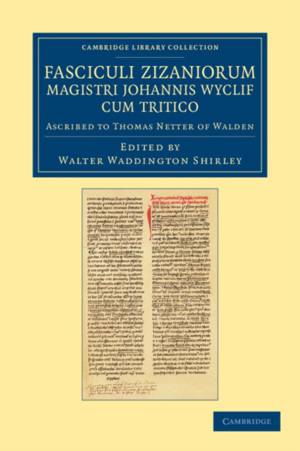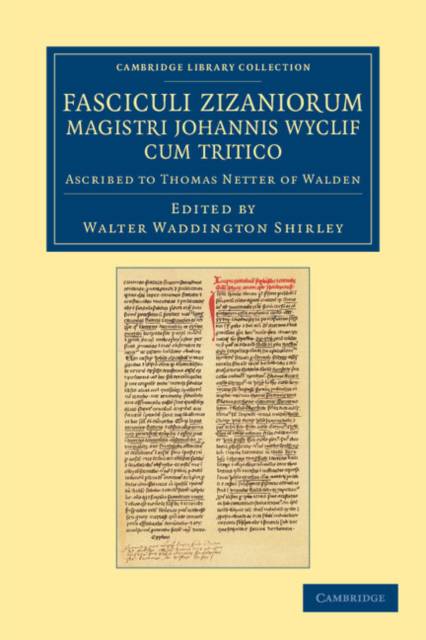
- Afhalen na 1 uur in een winkel met voorraad
- Gratis thuislevering in België vanaf € 30
- Ruim aanbod met 7 miljoen producten
- Afhalen na 1 uur in een winkel met voorraad
- Gratis thuislevering in België vanaf € 30
- Ruim aanbod met 7 miljoen producten
Zoeken
Fasciculi Zizaniorum Magistri Johannis Wyclif Cum Tritico
Ascribed to Thomas Netter of Walden
€ 120,95
+ 241 punten
Omschrijving
Having obtained a first class degree in mathematics from Wadham College, Oxford, Walter Waddingham Shirley (1828-66) taught mathematics there before turning his attention to ecclesiastical history. Shirley earned a reputation amongst his contemporaries as an objective researcher with a clear writing style, and he was considered one of the ablest of the new Oxford historians. The Fasciculi, first published in 1858, is a collection of documents relating to John Wycliffe and his followers. The earliest texts reproduced in this volume are three partial determinations against Wycliffe dating from the fourteenth century. The latest document dates from the trial in 1428 of the Lollard William White. Shirley successfully proved in his introduction that the documents, originally attributed to the Carmelite friar Thomas Netter of Walden, were compiled after Netter's death. Shirley also argued that Wycliffe was originally a constitutional rather than a theological reformer, which provoked criticism from reviewers.
Specificaties
Betrokkenen
- Uitgeverij:
Inhoud
- Aantal bladzijden:
- 654
- Taal:
- Engels
- Reeks:
Eigenschappen
- Productcode (EAN):
- 9781108021777
- Verschijningsdatum:
- 28/10/2010
- Uitvoering:
- Paperback
- Formaat:
- Trade paperback (VS)
- Afmetingen:
- 152 mm x 229 mm
- Gewicht:
- 943 g

Alleen bij Standaard Boekhandel
+ 241 punten op je klantenkaart van Standaard Boekhandel
Beoordelingen
We publiceren alleen reviews die voldoen aan de voorwaarden voor reviews. Bekijk onze voorwaarden voor reviews.







